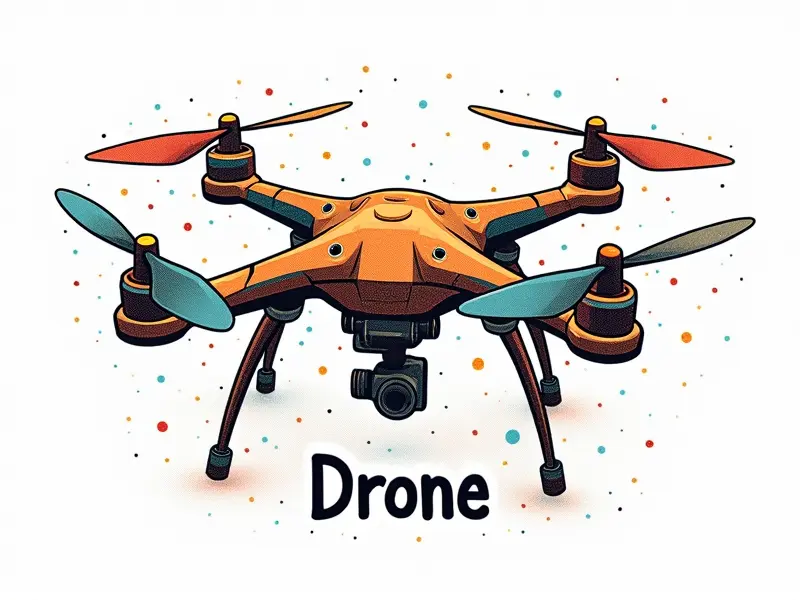Can I use a Li-Po in my drone?

LiPo Battery Tips for RC Quadcopters
When it comes to powering your remote-controlled (RC) quadcopter, choosing the right battery is crucial. Lithium Polymer (Li-Po) batteries are a popular choice due to their high energy density and lightweight design. However, using Li-Po batteries effectively requires some knowledge about maintenance and safety.
Firstly, ensure that your drone's power system is compatible with Li-Po batteries. Check the voltage requirements of your motors and ESCs (Electronic Speed Controllers) to match them with a suitable battery pack. Additionally, consider the capacity needed for extended flight times.
Maximizing Flight Time with LiPo Batteries
To get the most out of your Li-Po batteries in terms of flight time, follow these tips:
- Select the right capacity: Choose a battery that matches your drone's power requirements and desired flight duration.
- Monitor voltage levels: Keep an eye on the discharge rate to avoid over-discharging, which can damage the battery.
- Balancing: Use a charger with balancing capabilities to ensure each cell in your Li-Po pack is charged evenly.
Understanding LiPo Battery Ratings
Li-Po batteries are rated by their voltage (V) and capacity (mAh). The voltage determines the power output, while capacity indicates how long the battery can sustain that power. For example, a 3S (11.1V) 5000mAh Li-Po battery offers more energy than a 2S (7.4V) 5000mAh pack.
Additionally, C ratings are important for performance. A higher discharge rate allows your drone to handle high-power loads without voltage drops or overheating issues.
Common LiPo Issues in Drones Solved
Li-Po batteries can face several common problems:
- Balancing issues: Use a charger with balancing capabilities to prevent cell imbalance.
- Overheating: Ensure proper ventilation and cooling for your drone's battery compartment.
- Poor performance: Check connections, clean contacts, and maintain optimal temperature range.
Choosing the Right LiPo Capacity
The right capacity depends on your drone’s power consumption and desired flight time. A higher mAh rating generally means longer flights but also heavier batteries. Balance this with motor efficiency and ESC ratings to find an optimal solution for your setup.
Can I Use LiPo in FPV Racing Drones?
Absolutely! Li-Po batteries are ideal for fast-paced, high-performance applications like FPV racing drones due to their ability to deliver high currents without significant voltage drop. Just ensure you have the correct C rating and capacity to match your drone's power requirements.
Best Li-Po Battery Options for Drones
Selecting the best Li-Po battery involves considering factors like discharge rate, capacity, and brand reliability:
- Gens Ace: Known for high-quality batteries with excellent performance in RC applications.
- Hobbywing: Offers a range of options tailored to different power needs and use cases.
DIY: Modifying Your Drone for Li-Po
If your drone isn't designed specifically for Li-Po batteries, you might need some modifications:
- Battery compartment: Ensure there's enough space and proper ventilation.
- Wiring: Check connections to prevent overheating or electrical issues.
Comparing Li-Po vs Lithium-Ion for Drones
Lithium-ion (Li-Ion) batteries are another popular choice, but they differ from Li-Po in several ways:
- Weight and size: Li-Po is generally lighter and more compact.
- Cycle life: Li-Po tends to have a shorter lifespan compared to Li-Ion.
Benefits of Li-Po Batteries for Drones
The advantages of using Li-Po batteries in drones include:
- High energy density: More power per unit volume and weight.
- Flexibility: Customizable configurations to fit various drone designs.
Are LiPo Batteries Safe for Drones?
Lithium Polymer batteries are safe when used correctly. Proper handling, charging, and storage practices can prevent issues like swelling or fire hazards.
- Proper storage: Store in a cool place away from flammable materials.
- Safety gear: Use protective equipment during handling and charging.
Conclusion
In conclusion, Li-Po batteries are an excellent choice for powering your drone due to their high energy density and lightweight design. By understanding battery ratings, addressing common issues, and choosing the right capacity, you can maximize flight time and performance while ensuring safety.

